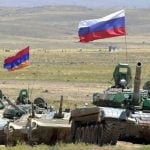Technological advances have changed the way we combat terrorism in the modern world, but these developments have also allowed violent extremists and terrorists to exploit a rapidly changing landscape for their own nefarious gains.
Historically, terrorist financing included donations, the misuse of non-profit organisations and criminal acts such as kidnapping, theft or the illicit drug trade and more recently, the exploitation of natural resources. However, with the growing adoption of new technologies, the misuse of cryptocurrencies by violent extremist groups and individuals has emerged as a new and additional financing technology.
Cryptocurrencies provide an alternative method of payment using encrypted algorithms. The system is entirely decentralized and exists outside of government control on blockchain technology, the digital ledger that logs each transaction and is duplicated and circulated across computers. This peer-to-peer network offers enhanced levels of anonymity for the sender and receiver, a very appealing prospect for extremists.
So-called “anonymity enhancing technologies” such as mixers and tumblers have also been identified by the Financial Action Task Force as a “high risk” to terrorist financing. These applications obfuscate transaction paths and hinder investigations attempting to connect crypto assets to violent extremists and terrorists.
Furthermore, “privacy coins,” such as Monero, encrypt the software holding the crypto, known as wallets. As such, even if a wallet is seized by law enforcement, it is impossible to ascertain how many cryptocurrencies are held in it, unless the user surrenders the key.
Extremists are already exploiting these new technologies. In 2018, the far-right terrorist group the Order of Darwin launched a campaign to raise Monero. The group’s website encouraged visitors to “mine” Monero on their website specifically to fund firearms and explosives. Similarly, the neo-Nazi group the Nordic Resistance Movement, have used Bitcoin and Monero to raise funds. They claim to have amassed over 1,000,000 Kronor (€92,000) worth of Bitcoin after the group’s bank accounts were closed.
Crypto also facilitates cross-border funding. French authorities have recently imprisoned two members of a network subsidising jihadists in Syria via the transfer of crypto. They reportedly wired €280,000 to Syrian jihadists between 2018 and 2020.
In recent years, there have been some advancements, with the US and Israel prosecuting ISIS and Hamas supporters and seizing their crypto assets. These seizures indicated that Bitcoin, the most widely used cryptocurrency, can be traced if it is held on servers in jurisdictions where cryptocurrencies are regulated. Unfortunately, many jurisdictions remain unregulated, preventing any retrieval of the crypto assets.
Recently, the EU has also thankfully stepped in with a regulatory framework to help stem the tide of illicit flows of terrorist funding within its borders and to prohibit overseas funding. The French Council Presidency and Parliament have come to a provisional agreement regarding the Markets in Crypto-Assets regulation. Under this framework, Crypto Asset Service Providers (CASPs) will have to be authorised to operate within the EU and will have a requirement to protect consumers and target market abuse. Non-compliant CASPs will also be placed on a public ledger. Under the new legislation, crypto transactions and digital asset transfers will have to be traced to identify money laundering and terror financing.

Transparency is key to overcoming the threat of terrorist financing through crypto. The EU is expanding the level of clarity on the transfer of virtual currencies to ensure traceability. European regulations must continue to focus on asset providers to ensure they share any information about suspicious activities and monitor those who appear to be engaging in fraudulent or terror financing activities.
However, effective regulatory solutions to this newest generation of technology, which includes mixers, tumblers and privacy coins, have not yet been found. With the consistent move towards ever more direct peer-to-peer networks, through decentralised wallets, more regulatory innovation will be needed
Finally, enhancing the technical capabilities and capacities of law enforcement is key. Enhanced cryptocurrency technologies require high levels of technical expertise, which is not yet readily available within law enforcement authorities.
Rather than continuing the competition between law enforcement authorities in EU countries for the best talent while also competing with the private sector for the same limited pool of specialists, it may be necessary to think about alternative models, such as private-public partnerships or the provision of technical investigation services at a central hub, such as for example within EUROPOL.
While technologies continue to develop so will their misuse for criminal purposes, now is the time to throttle extremist funding and hinder the expansion of global violent extremism and terrorism.








